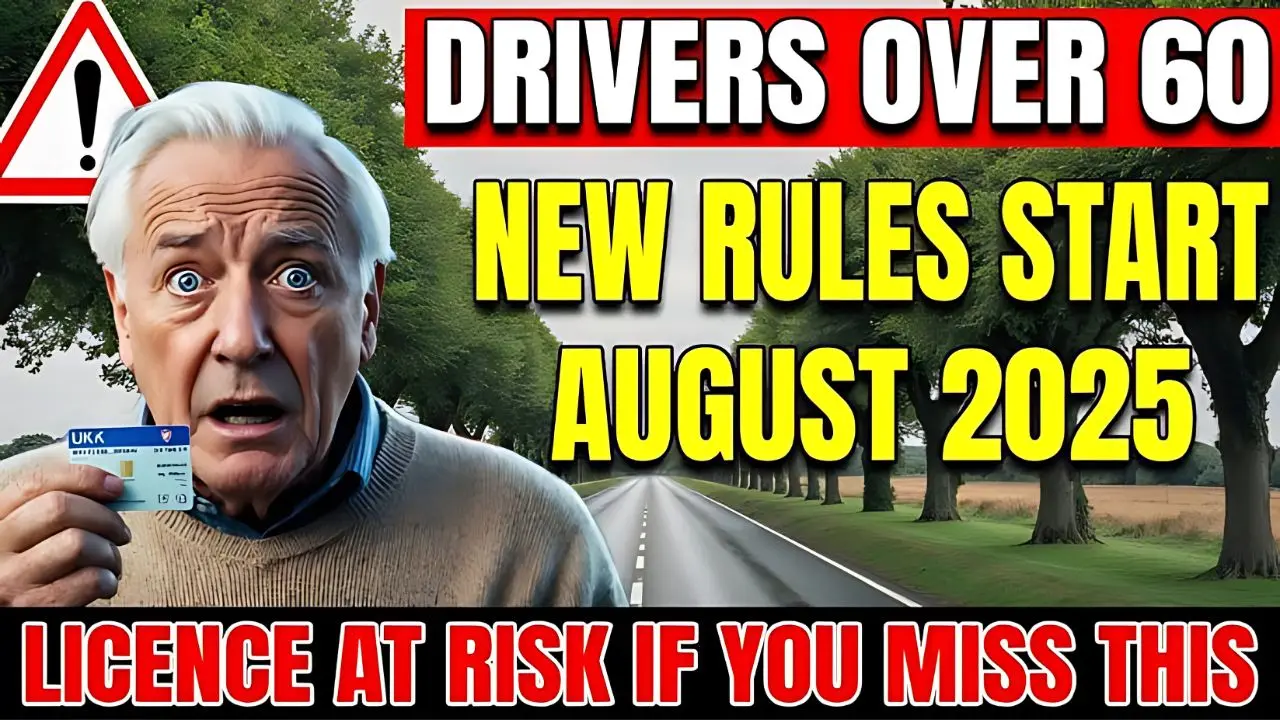Starting August 2025, in Australia, new driving rules are going to be in effect for senior citizens of over 60. The government has made these changes in the name of road safety, responsible driving, and giving older drivers a chance to still meet modern traffic standards. The rules intend to put into motion several thousands of drivers across this nation.
Why the Rules Are Changing
The decision to change the rules for senior drivers lands in a background of studies proving that some health conditions arising with age, slower reaction time, and a decline in vision could affect driving competency. The authorities see the new measures as being instrumental in reducing accidents but still allow older Australians of their choosing to be safe drivers for a longer time.
Medical Assessments for Drivers Over 60
Now with the new law, when someone is over 60, they might have to prove on more occasions that they remain medically fit to drive. This means they will be assessed for issues including vision, mobility, reflexes, and general health. Doctors will decide whether the driver should be issued with an unrestricted licence or whether the doctor should recommend the issuance of a conditional licence.
Driving tests and renewal of licences
A driver may be required to pass a practical driving test upon licence renewal to demonstrate safe driving in actual traffic for such requirements. Renewals may be shorter in length so that seniors over 60 may renew their licences every few years as opposed to every 10.
Conditions imposed on licences for seniors
Depending upon an individual’s health and abilities, certain restrictions may be put on the licence of an elderly individual. These may mean driving only in daylight hours, restricting movement in a distance away from home, or avoiding the use of highways. The idea is to keep safety intact while affording some measure of independence.
Effect on Daily Life
In the lives of many senior citizens in Australia, driving is of course freedom, while the new regulations may seem like another burden foisted upon them, they are actually designed for the sake of the elderly drivers as well as the community at large. Those elderly persons who pass medical and driving tests will still be free to stay on the road.
Preparing for the Changes
Older drivers should try to keep regular medical check-ups, be reasonably fit, get their eyesight tested, to avoid any shocks when the regulations are running. It would be prudent also to attend road safety awareness courses to keep abreast of changes in traffic laws and in techniques of safe driving.
In Conclusion
The year 2025 marks the beginning of this significant change in driving regulations for seniors in Australia. While some may find the more stringent requirements too demanding, the whole aim is to save lives without robbing unwarranted independence from the seniors. Those seniors who start making early arrangements will find it easier to settle in and get back to enjoying the advantages of driving with confidence.





